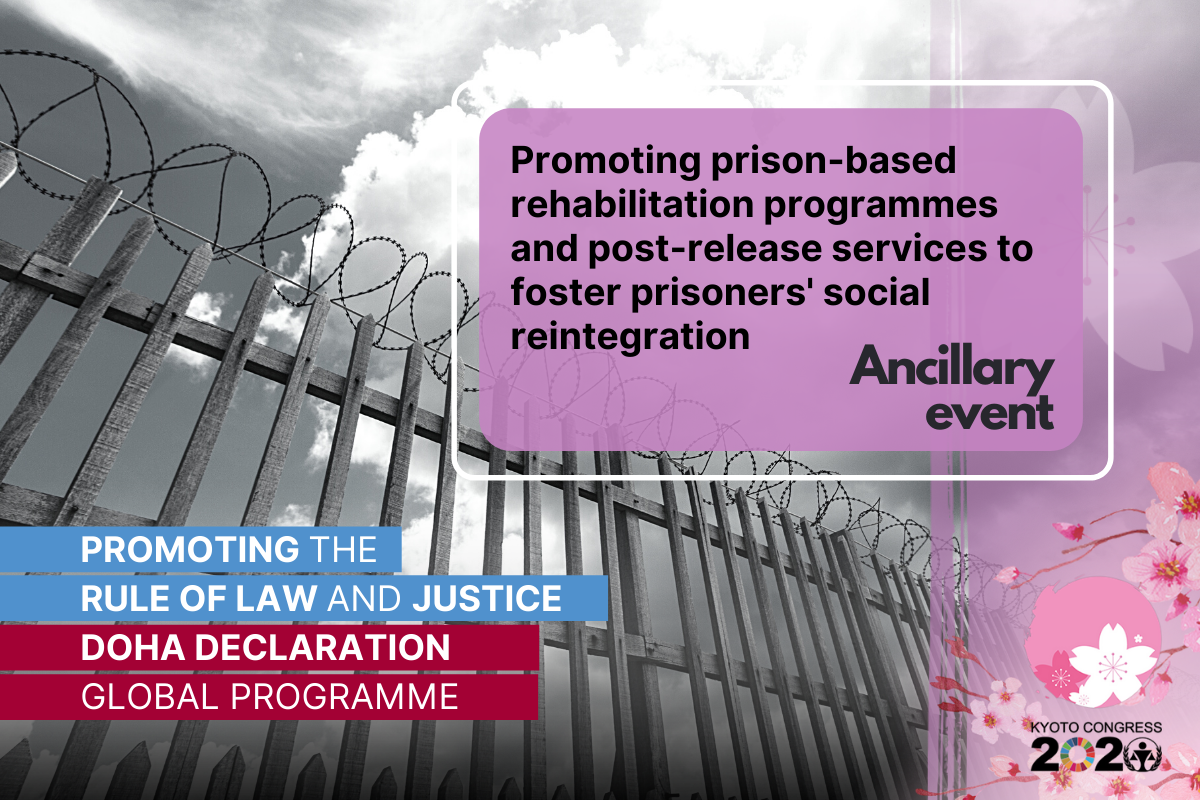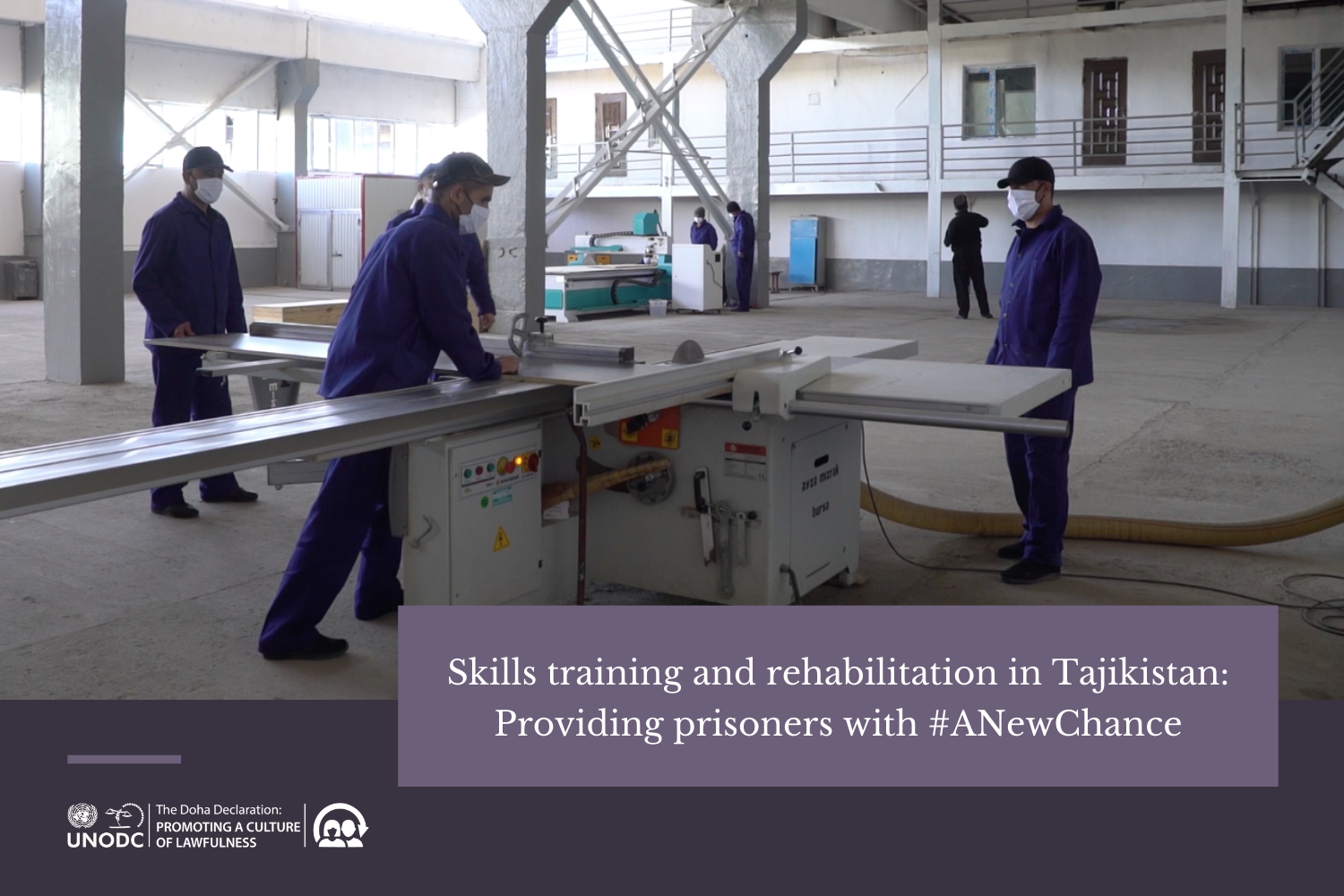Providing a new chance for prisoners in Kyrgyzstan: UNODC launches country’s latest rehabilitation skills training facilities
28 August 2020 – Despite the widely understood notion that imprisonment should be designed to rehabilitate prisoners ahead of their release, rather than simply punish them for crimes committed, far too often countries lack the resources to put into place structured programmes to ensure lower chances of reoffending. In Kyrgyzstan, as in many parts of the world, this is a challenge for authorities with limited skills training production facilities hampering social reintegration ambitions. Indeed, out of the country’s 9,000 prisoners, only 2,000 are currently involved in some form of work programme with a view to foster rehabilitation, an issue recognized by the Acting Chairperson of Kyrgyzstan’s State Prison Service, Kadyrov Aivaz Samatovich: “There are many prisoners willing to gain knowledge and skills, work and earn during their detention, but unfortunately we’re unable to ensure the needs fully at this moment.”
As part of UNODC’s efforts to overcome issues such as this and promote prisoner rehabilitation, the organization this week launched a set of new initiatives in Kyrgyzstan, with a focus on shoemaking and sewing skills in cooperation with the Government. Being rolled out as part of the Doha Declaration Global Programme, the two new facilities will train 100 female and male prisoners annually in these areas, providing them with viable skills and certifications ahead of their release.
During a virtual, online launch of the opening of these new facilities, Ashita Mittal, UNODC Regional Representative for Central Asia, highlighted how the new sewing and shoemaking production facilities will provide prisoners the opportunity to gain work experience which will help them with employment opportunities after release. She also pointed to an ongoing baking initiative launched in Kyrgyzstan’s female prison #2 in 2018 which has not only helped train a sizeable number of female offenders, but now supplies other prisons with bread, baking around 1,200 loaves daily. “I believe the existing initiative, as well as these two new production facilities, will successfully function in a sustainable way to help prisoners with their rehabilitation so they can return to their families and be more easily reintegrated into society.”
The head of the Global Programme, Marco Teixeira, echoed this, stressing how imprisonment should not be solely limited to the deprivation of liberty but must include opportunities for prisoners to obtain knowledge and skills that can assist in their successful reintegration. “We are heartened by the progress achieved in our joint efforts with partner countries,” he said. “In particular, we have witnessed a renewed emphasis on the rehabilitation of prisoners through life skills training programmes, allowing prisoners to capitalize on their talent and potential, and facilitating their reintegration into the community after their sentences are served.”
The importance of partnering to encourage success and build a new chance for prisoners was also noted by Mr. Samatovich whose administration is aware of the eagerness of prisoners to learn new, life changing skills: “I do believe that if we continue our cooperation in the way we have been, we will be able to reach our goals and more prisoners will get opportunities to be engaged into rehabilitation programmes and find their place in society after release.”
The three initiatives – baking, sewing and shoemaking – are part of an ongoing cooperation with Kyrgyzstan’s State Prison Service, with funding of the development of the three facilities generously provided by the State of Qatar. They completement other prison-based efforts now being rolled out in 10 other countries, as well as a range of additional activities design to boost the rule of law through a multiyear initiative.
Speaking on Qatar’s support to these efforts, the country’s chargé d'affaires to Kyrgyzstan, Jassim Saleh Al-Jaber, expressed his thanks to the Kyrgyz Government for their efficient cooperation, in particular carrying out the recommendations of the Doha Declaration adopted at the 13th United Nations Crime Congress.
Additional information:
Prisoner Rehabilitation
UNODC Central Asia


